ANNUAL REPORT 2022

he Mindich Child Health and Development Institute (MCHDI) is a translational research enterprise with the mission of advancing knowledge and therapies for diseases affecting infants, children, and adolescents. Led by Bruce D. Gelb, MD, the MCHDI provides an intellectually rich and supportive environment for fostering collaborative scientific investigation and Mount Sinai’s “bench to bedside” philosophy, as well as training the next generation of scientific leaders in pediatric medicine.
Physician-scientists and scientists at the MCHDI work in a multidisciplinary manner with researchers and physicians in various departments and institutes at Mount Sinai. Together, we strive toward the objectives of developing robust paradigms for understanding the effects of genetics and environment on the health of infants, children, and adolescents, and personalizing pediatric medicine through genetics and genomics.
The Mindich Child Health and Development Institute 2

The Mindich Child Health and Development Institute 3 TABLE
CONTENTS Director’s Message 4 Faculty Growth ....................................................................................................................................... 5 New Faculty 7 Faculty Research Areas .................................................................................................................... 11 Faculty Research Interactions 24 Awards/Honors and Publications ............................................................................................... 27 Grants and Material Transfer Agreements/Licenses 34 Pilot Projects Funded for 2021-2022 ........................................................................................ 35 Annual Retreat 38 Communications ................................................................................................................................... 39 Shared Resources 40 Strategic Plan Implementation ...................................................................................................... 42 Leadership and Staff 47
OF
Director’s Message

What a difference a year makes! As I wrote this message a year ago, in early 2022, we were in the midst of the COVID-19 wave from the Omicron variant. Our hopes then were that this wave would wane fast and enable us to move to a manageable endemicity. Indeed, looking back on the year as it unfolded, January 2022 was the worst of it by far and the summer wave was quite modest. Thus far, no significant COVID-19 wave has occurred this winter. Recognizing this, the U.S. Government will end its national and public health emergency declarations in mid-May. This aligns with our increasing return to normality at Mount Sinai—dispensing with masks in our research areas and resuming many of our in-person activities. While SAR-CoV-2 vaccinations are poised to become a routine part of our health maintenance, much like influenza vaccinations, we should celebrate the scientific triumphs that have liberated us from this scourge, saving countless lives.
Before becoming too triumphalist, let us acknowledge that research will be needed for many years to come in order to understand the true impact of COVID-19, particularly about today’s children and adolescents. How does seeing only one’s immediate family, at least without masks, and rarely interacting with peers for extended periods impact the growth and development of young children? What are the effects from isolation on maturation for adolescents, particularly ones with developmental or social skills challenges, and can those be overcome as society reopens? I think about the impact of the Dutch famine during the winter of 1944–45, which led to epigenetic alterations that continue to contribute to certain health risks in subsequent generations to the present day. Not to equate nutritional and social deprivations, but one can imagine the impact of the past three years echoing for quite some time. The opportunity and obligation to study such phenomena lie in front of us and our successors.
Bruce D. Gelb, MD, Director

Our School announced that it was undertaking a bold new biobanking project, the Mount Sinai Million Health Discoveries Program. This program’s goal is to recruit a cohort of one million diverse individuals through the Mount Sinai Health System, whose DNA will undergo exome sequencing. Those sequencing data will then be analyzed using the rich clinical data available through our electronic medical records. For the MCHDI, the added excitement is the institutional commitment that 10%, or 100,000, of recruited individuals will be infants, children and adolescents, which our institute will oversee. A notable gap in most of the existing large biobanks with exome or genome sequencing, for example, the United Kingdom Biobank, All of Us (to date), the Million Veterans Project, has been the absence of pediatric participants. This has limited the ability of child health researchers to undertake large-scale genomic medicine studies that enable new discoveries for diseases of childhood. It has also limited our ability to understand the impact of putatively damaging genetic variation on children’s health on a population basis. Recruiting this size cohort at Mount Sinai will clearly be a major lift, but the potential benefits to child health research are substantial.
Finally, the MCHDI is working with our partners in the Department of Pediatrics and Mount Sinai Children’s to initiate some major new research endeavors. We hope that 2023 will see their successful launches. Stay tuned for more about those initiatives as they come to fruition.
The Mindich Child Health and Development Institute 4
FACULTY GROWTH
MCHDI ANNUAL FACULTY GROWTH 2022

In 2022
We welcomed five new external faculty and four internal faculty members to our institute.
85 Members
In 2022, we welcomed five new external faculty and four internal faculty members to our institute. Currently, we total 85 members consisting of scientists and physician-scientists across the disciplines of Allergy & Asthma, Cardiovascular Disease, Neurodevelopmental Disorders, Obesity & Diabetes, and more.
n Existing faculty
n Internal recruits
n External recruits
MCHDI FACULTY MEMBERS
MCHDI faculty members from left to right: Nicole C. Dubois, PhD; Adolfo Garcia-Ocaña, PhD Donald K. Scott, PhD; M. Cecilia Berin, PhD (no longer at Mount Sinai); Minji Byun, PhD (no longer at Mount Sinai); David Dunkin, MD; Dalila Pinto, PhD; Andrew J. Sharp, PhD; Dani Dumitriu, MD, PhD (no longer at Mount Sinai); Bruce D. Gelb, MD; Amy R. Kontorovich, MD, PhD; Martin J. Walsh, PhD; Jia Chen, ScD; Rupangi C. Vasavada, PhD (no longer at Mount Sinai)

The Mindich Child Health and Development Institute 5
Chart of faculty recruits since our inception in 2009. In 2022, our institute recruited five new external and four new internal faculty members to our institute.
NEW FACULTY
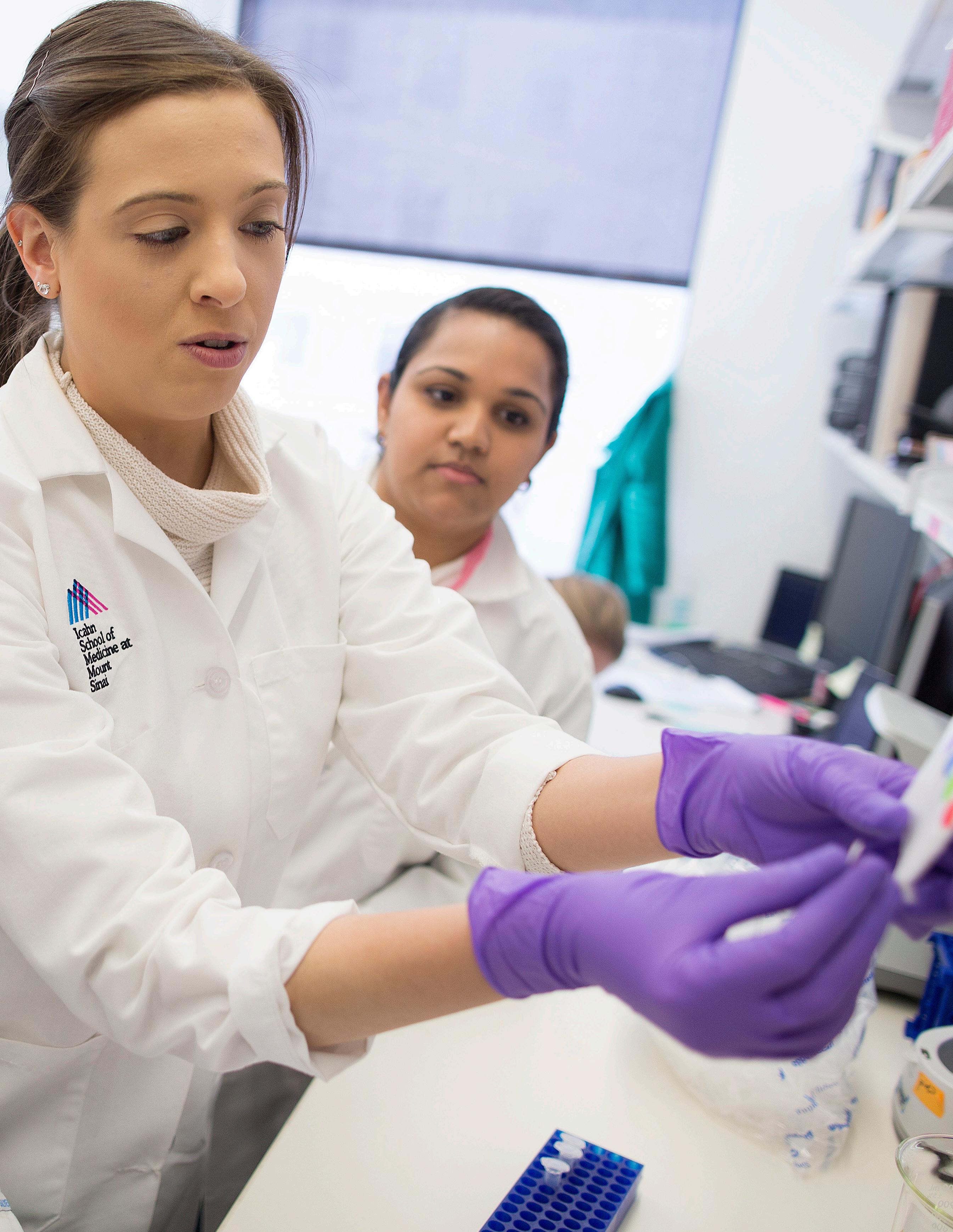
NEW EXTRAMURAL FACULTY
Nathalie Chami, PhD
Nathalie Chami, PhD, is an instructor of Environmental Medicine & Public Health in the lab of Dr. Ruth Loos at the Icahn School of Medicine. The focus of her research has been on gene discovery in monogenic and polygenic traits and disorders, including blood cell traits, familial dilated cardiomyopathies, obesity, and related metabolic traits using genotype and sequencing data.
She is currently leading one of the largest studies aimed at identifying novel genes associated with BMI and obesity using whole exome and whole genome sequencing analysis in TOPMed and the UK Biobank, two of the largest datasets available to the research community. She is also leveraging these datasets to study the penetrance of variants that cause monogenic disease in order to improve interpretation of rare variants. In addition, she is interested in identifying genetic factors that increase the risk of obesity but otherwise decrease the risk of cardiometabolic traits such as cholesterol and blood pressure and vice
versa with the purpose of elucidating the mechanisms that uncouple weight gain from susceptibility to cardiovascular outcomes.
Dr. Chami received a BSc in biomathematics and an MSc in human genetics from McGill University. She then pursued her doctoral studies at the Montreal Heart Institute. Dr. Chami received a postdoctoral grant from the Canadian Institute of Health Research from 2017-2020 and completed her postdoctoral training at the Icahn School of Medicine at Mount Sinai.

Sarah Duncan-Park, PhD
Sarah Duncan-Park, PhD, is an Assistant Professor in the Department of Pediatrics, Division of Developmental-Behavioral Pediatrics at the Icahn School of Medicine at Mount Sinai. Dr. Duncan-Park received her undergraduate degree summa cum laude from Providence College and attended Teachers College, Columbia University, where she received her Master of Arts in clinical psychology.
She then earned her doctorate in clinical psychology from Fordham University, where she received an F31 Ruth L. Kirschstein Predoctoral Individual National Research Service Award through the NICHD to investigate patterns of medication adherence in pediatric solid organ transplant recipients. Dr. Duncan-Park completed her predoctoral internship training with the NYU-Bellevue Clinical Psychology Internship Program – Child and Adolescent Track, as well as a part-time postdoctoral fellowship through NYU’s
Integrated Behavioral Health program, during which time she also served as a study manager at Mount Sinai. Her areas of expertise include youth and caregiver coping with pediatric chronic illness, understanding and supporting medication adherence, and intervention development in this population.

The Mindich Child Health and Development Institute 7
NEW EXTRAMURAL FACULTY - CONTINUED
Son Duong, MD
Son Duong, MD, received his medical doctorate at the University of Virginia School of Medicine. He completed his residency training in pediatrics at UPMC Children’s Hospital of Pittsburgh and completed a Master of Science in clinical research at the University of Pittsburgh.
He then completed his Pediatric Cardiology Fellowship at Lucile Packard Children’s Hospital at Stanford, and an advanced noninvasive imaging fellowship at Icahn Mount Sinai and Mount Sinai Kravis Children’s Hospital. Dr. Duong’s research is focused on application of advanced data analysis techniques to large-scale data sources for better
Joan Han, MD
prediction of outcomes in patients with congenital heart disease. He is currently a faculty member of the Artificial Intelligence in Medical Science (AIMS) Lab. As a specialist in cardiac imaging, he is developing artificial intelligence-assisted prediction tools for cardiac structure and function from multimodality data.
Joan Han, MD, is a Professor of Pediatrics and Chief of the Division of Pediatric Endocrinology and Diabetes in the Jack and Lucy Clark Department of Pediatrics at the Icahn School of Medicine at Mount Sinai and Mount Sinai Kravis Children’s Hospital. She earned her undergraduate and medical degrees from Harvard University.

She completed her residency in pediatrics at Boston Children’s Hospital and Boston Medical Center, and pursued further advanced training in a clinical research fellowship at Nemours Children’s Clinic in Jacksonville, Florida, and a pediatric endocrinology fellowship at the National Institutes of Health in Bethesda, Maryland. Prior to joining Mount Sinai, she was Associate Professor of Pediatrics and Director of the Pediatric Obesity Program at the University of Tennessee Health Science Center and Le Bonheur Children’s Hospital in Memphis, Tennessee. She is board certified in general pediatrics, pediatric endocrinology, and obesity medicine and has published broadly in these fields. Dr.
Elvin Wagenblast, PhD
Han’s primary research efforts focus on the neuroendocrine regulation of energy balance and cognitive functioning as well as the genetic, environmental, and behavioral determinants of metabolic health in the general population and in patients with rare genetic disorders associated with obesity and type 2 diabetes. She served as Pediatric Associate Editor for the International Journal of Obesity from 20152021. She is a member of the American Pediatric Society, the Society for Pediatric Research, the American Pediatric Society, the Pediatric Endocrine Society, the Endocrine Society, and The Obesity Society, and is a fellow of the American Academy of Pediatrics.
Elvin Wagenblast, PhD, is an Assistant Professor of Oncological Sciences and Pediatrics at the Icahn School of Medicine at Mount Sinai. Dr. Wagenblast earned his PhD in biological sciences from Cold Spring Harbor Laboratory.


He most recently was a Human Frontier Science Program Fellow and Banting Fellow in the laboratory of John Dick, PhD, FRS, at Princess Margaret Cancer Centre at the University of Toronto. There, he developed methodologies for genome editing technologies in human primary blood stem cells. In the summer of 2022, Dr. Wagenblast joined
Mount Sinai to study childhood leukemia. With the support of a Damon Runyon-Rachleff Innovation Award, the central question of his laboratory is to understand how a normal blood stem cell can become cancerous and how this process is different in children versus adults.
The Mindich Child Health and Development Institute 8
INTRAMURAL FACULTY
Sharon Baumel-Alterzon, PhD
Sharon Baumel-Alterzon, PhD, is an instructor in the Diabetes, Obesity and Metabolism Institute at the Icahn School of Medicine at Mount Sinai. Dr. Baumel-Alterzon received her PhD in 2014 from the Technion-Israel Institute of Technology, where she studied parasitic diseases.
In 2018, Dr. Baumel-Alterzon joined Dr. Donald Scott’s lab at Mount Sinai to study the underlying mechanisms that regulate the expansion of pancreatic β-cells with the idea of finding therapeutic targets that can regenerate β-cells in diabetes. Specifically, her work focuses on the role of Nrf2 transcription factor, a master regulator of anti-oxidative response, on adaptive β-cell expansion, survival, and identity. Dr. Baumel-Alterzon has recently shown that Nrf2 is required for adaptive β -cell expansion under situations of overnutrition and that activation of the Nrf2 pathway using pharmacological agents increases human β-cell proliferation, highlighting the promising therapeutic potential of compounds that modulate Nrf2 to induce β-cell regenera-
Megan Januska, MD

tion for diabetes. Since defects in maternal β-cell adaptive expansion can lead to gestational diabetes mellitus, Dr. Baumel-Alterzon has been recently awarded with a NIH/ NIDDK KO1 award to study the role of Nrf2 in β-cell turnover during pregnancy. Additionally, due to the sharp increase in the annual incidence of both type 1 (1.8%) and type 2 (4.8%) diabetes in the pediatric population in the last decades, as part of MCHDI trainee pilot award, Dr. Baumel-Alterzon began to explore the role of Nrf2 in regulating β-cell expansion at early stages of life. Dr. Sharon Baumel-Alterzon’s final goal is to identify mechanistic targets for therapeutic intervention in diabetes.
Megan Januska, MD, is an Assistant Professor in the Division of Pediatric Pulmonology in the Jack and Lucy Clark Department of Pediatrics and in the Department of Genetics and Genomic Sciences at the Icahn School of Medicine at Mount Sinai and Mount Sinai Kravis Children’s Hospital.

After receiving her undergraduate degree from Grinnell College and her medical degree from the Geisel School of Medicine at Dartmouth, Dr. Januska completed her pediatric residency and pediatric pulmonology fellowship training at the Icahn School of Medicine at Mount Sinai.
Supported by a Cystic Fibrosis Foundation Clinical Fellowship Award, Dr. Januska developed a research project focusing on the cellular and molecular mechanisms that define the pediatric cystic fibrosis airway through the application
of single-cell technologies to minimally invasive respiratory specimens obtained during flexible bronchoscopy. Leveraging the developed workflow, Dr. Januska now aims to create a single-cell atlas of the normal pediatric airway along with a corresponding model system through the generation of patient-derived airway organoids with the support of a KL2 Scholars Award. Ultimately, Dr. Januska intends to apply the workflow and generated dataset to develop novel and minimally invasive methods to investigate and diagnose rare and severe pediatric respiratory disorders.
The Mindich Child Health and Development Institute 9
INTRAMURAL FACULTY - CONTINUED
Behrang Mahjani, PhD
Behrang Mahjani, PhD, has a unique background in analyzing complex biological data using advanced statistical models. He completed his BSc at K.N.Toosi University of Technology in 2004 and his first MSc in complex adaptive systems with a specialization in population genetics at the Chalmers University of Technology, Sweden, in 2008.

He continued at the Chalmers University of Technology and received his second MSc in mathematical statistics in 2011. He then completed his PhD at Uppsala University, Sweden, in statistical computing in 2016. His doctoral dissertation was focused on the development of new analytical methods for the genetic mapping of complex traits.
Dr. Mahjani spent one year as a postdoctoral fellow at the Department of Biostatistics and Epidemiology at Karolinska
Sarah Stanley, PhD

Institutet, where he received training in epidemiology and statistical methods for register-based research. Then, he was a postdoctoral fellow at the Department of Psychiatry at the Icahn School of Medicine at Mount Sinai under the mentorship of Drs. Joseph Buxbaum and Dorothy Grice. Dr. Mahjani’s primary interest is to better understand the developmental mechanisms and trajectories of childhood neuropsychiatric disorders, from the prenatal period through adolescence.
Sarah A. Stanley, PhD, is an Assistant Professor the Icahn School of Medicine at Mount Sinai in the Diabetes, Obesity and Metabolism Institute, and Neuroscience. Her research focuses on developing and optimizing tools to image and modulate neural circuits and applying these to understand neural control of metabolism.
After receiving her undergraduate and medical degrees from Cambridge University, Dr. Stanley completed her endocrinology training and Ph.D. at Imperial College London. Supported by a Medical Research Council fellowship, Dr. Stanley moved to Rockefeller University for postdoctoral training, focusing on developing novel neuromodulatory tools to study the neural circuits regulating glucose metabolism. Since joining the Diabetes Obesity and Metabolism
Institute at Mount Sinai, Dr. Stanley’s lab has continued to develop and optimize novel imaging and neuromodulatory tools to examine the roles of central and peripheral neural circuits in the regulation of glucose metabolism and determine how these circuits are disrupted in metabolic disease. Ultimately, the aim of these studies is to identify new methods to prevent and treat diseases such as diabetes.
The Mindich Child Health and Development Institute 10
FACULTY RESEARCH AREAS

ASTHMA AND ALLERGY
M. Cecilia Berin, PhD
(Adjunct Professor, Pediatrics)
Research Areas: Immune mechanisms of food allergy and regulation of immune tolerance
Supinda Bunyavanich, MD, MPH


(Professor, Pediatrics, and Genetics and Genomic Sciences)
Research Areas: Integrative genomics of asthma and allergic diseases
Maria Curotto de Lafaille, PhD

(Associate Professor, Pediatrics)
Research Areas: Immunology of allergic diseases, B lymphocyte responses
Ke Hao, ScD
(Professor, Genetics and Genomic Sciences)

Research Areas: Genetic pleiotropy, mendelian randomization, inflammatory bowel disease, placenta biology, ambient air particulate matter exposure
Hugh A. Sampson, MD
(Kurt Hirschhorn Professor, Pediatrics)
Research Areas: Immunopathogenesis of food allergy and anaphylaxis
Scott H. Sicherer, MD
(Director, Jaffe Food Allergy Institute; Division Chief, Pediatric Allergy; Elliot Roslyn Jaffe Professor, Pediatrics)


Research Areas: Food allergy epidemiology, treatments, natural course, quality of life
Julie Wang, MD


(Professor, Pediatrics)
Research Areas: Novel therapeutics for food allergy, epidemiology and management of food allergy and anaphylaxis
Karen M. Wilson, MD, MPH
(Adjunct Professor, Pediatrics)
Research Areas: Secondhand tobacco smoke, secondhand marijuana smoke, inpatient respiratory illness
The Mindich Child Health and Development Institute 12
CARDIOVASCULAR DISEASE
Harold S. Bernstein, MD, PhD
(Adjunct Professor, Pediatrics)
Research Areas: Drug development (target validation through clinical proof of concept), heart failure, metabolic syndrome, diabetes, thrombosis, chronic kidney disease
Nicole C. Dubois, PhD


(Associate Professor, Cell, Developmental & Regenerative Biology)
Research Areas: Heart development, stem cell differentiation, disease modeling
Son Duong, MD
(Assistant Professor, Pediatrics)
Research Areas: Artificial intelligence in cardiac imaging, pediatric cardiology

Bruce D. Gelb, MD

(Dean of Child Health Research, Gogel Family Professor and Director, Mindich Child Health and Development Institute; Professor, Pediatrics, and Genetics and Genomic Sciences)

Research Areas: Genetics of cardiovascular diseases, stem cell research, pediatric precision medicine
Alan Groves, MBChB, MD
(Adjunct Professor, Diagnostic, Molecular and Interventional Radiology)
Research Areas: Hemodynamics, cardiac function, echocardiography, magnetic resonance imaging
Yuval Itan, PhD


(Associate Professor, Genetics and Genomic Sciences)
Research Areas: Human disease genomics, computational biology, and bioinformatics
Anne Moon, MD, PhD
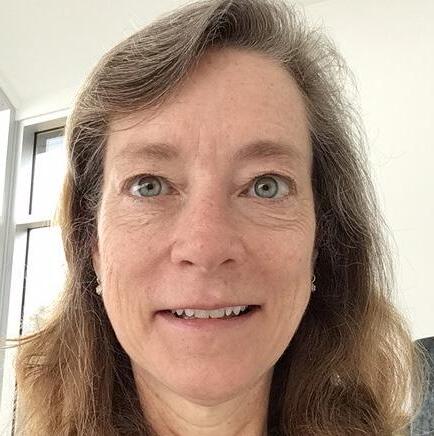
(Adjunct Professor, Pediatrics)
Research Areas: Developmental biology of congenital heart disease and limb defects, functions of Tbx and fibroblast growth factors
Amy R. Kontorovich, MD, PhD
(Medical Director, Adult Cardiovascular Genetics; Associate Professor, Medicine)
Research Areas: Myocarditis, genetics of cardiovascular diseases, stem cell research
The Mindich Child Health and Development Institute 13
NEURODEVELOPMENTAL DISORDERS
Mafalda Barbosa, MD, PhD



(Assistant Professor, Genetics and Genomic Sciences)
Research Areas: Genetics of neurodevelopmental disorders, precision medicine, rare diseases
Jennifer Bragg, MD
(Associate Professor, Pediatrics)
Research Areas: Neurodevelopmental disorders, sensory processing disorders, impact of parental stress on neurodevelopment, developmental programming, neurodevelopment in children with congenital heart disease, whole genome sequencing in infants and neonates
Michael S. Breen, PhD
(Assistant Professor, Psychiatry, and Genetics and Genomic Sciences)
Research Areas: Functional genomics of neurodevelopmental and neuropsychiatric disorders, transcriptomics, single-cell RNA-sequencing, stem cells, RNA editing and biology
Joseph D. Buxbaum, PhD

(Deputy Chair, Department of Psychiatry; Director, Seaver Autism Center for Research and Treatment; Professor, Psychiatry, Neuroscience, and Genetic and Genomic Sciences)
Research Areas: Autism spectrum disorder, neurodevelopmental disorders, gene discovery, functional genetics, molecular and cellular neuroscience, cell and animal model systems
Jia Chen, ScD

(Professor, Pediatrics, Environmental Medicine & Public Health, Medicine, and Oncological Sciences)
Research Areas: Environmental epigenetics, molecular epidemiology
Tirtha K. Das, PhD

(Assistant Professor, Cell, Developmental & Regenerative Biology)
Research Areas: Integrating fly plus vertebrate disease models, cancer, rare mendelian diseases, therapeutics development
Silvia De Rubeis, PhD
(Associate Professor, Psychiatry)
Research Areas: Intellectual disability, autism spectrum disorder, functional genetics, cell and animal model systems, brain development
Jennifer Foss-Feig, PhD

(Associate Professor, Psychiatry)
Research Areas: Autism spectrum and related neurodevelopmental disorders, neuroimaging, interactive social neuroscience, biomarker discovery, sensory processing

The Mindich Child Health and Development Institute 14
NEURODEVELOPMENTAL DISORDERS - CONTINUED
Dorothy E. Grice, MD
(Professor, Psychiatry)
Research Areas: Genetic and epidemiological studies of OCD, Tourette disorder, autism, and related childhood-onset neuropsychiatric disorders, prenatal exposures, including smoking, functional analysis of identified risk genes
Lisa Eiland, MD


(Associate Professor, Pediatrics)
Research Areas: Stress and neurodevelopment
Hala Harony-Nicolas, PhD

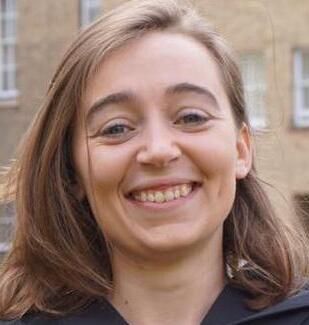
(Associate Professor, Psychiatry, and Neuroscience)
Research Areas: Brain circuits of social behavior, mechanisms of action of the oxytocin hypothalamic system, animal models for autism spectrum disorder
Megan K. Horton, PhD, MPH
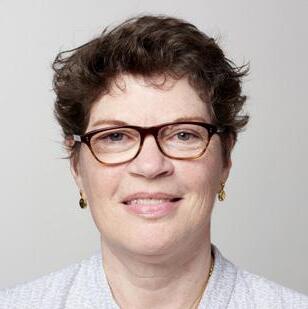
(Associate Professor, Environmental Medicine & Public Health)
Research Areas: Children’s environmental health, exposure assessment, pediatric neuroimaging
Laura Huckins, PhD
(Assistant Professor, Genetics and Genomic Sciences)
Research Areas: Psychiatric genetics, specializing in understudied disorders and disorders affecting vulnerable populations. Particular focus on anorexia nervosa, PTSD, sexual assault, OCD. Secondary focus on machine learning algorithms, transcriptomic imputation, multi-omit eQTLbased methodologies
Magdalena U. Janecka, PhD
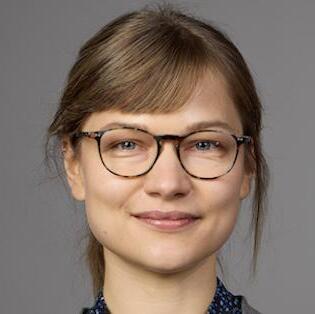
(Assistant Professor, Psychiatry)
Research Areas: Neurodevelopmental disorders; epidemiology, epigenetics, environmental risk factors
Alex Kolevzon, MD

(Director, Child and Adolescent Psychiatry; Professor, Psychiatry, and Pediatrics)

Research Areas: Autism spectrum and other neurodevelopmental disorders
Robert S. Krauss, PhD
(Professor, Cell, Developmental & Regenerative Biology, and Oncological Sciences)
Research Areas: Hedgehog signaling and birth defects, muscle stem cells and regeneration
The Mindich Child Health and Development Institute 15
NEURODEVELOPMENTAL DISORDERS - CONTINUED
Paige M. Siper, PhD

(Adjunct Assistant Professor, Psychiatry)
Research Areas: Autism, intellectual disability, biomarker discovery, sensory processing
Luca Lambertini, PhD
(Assistant Professor, Obstetrics, Gynecology and Reproductive Science)
Research Areas: Placental biomarkers of altered fetal and child development
Behrang Mahjani, PhD

(Assistant Professor, Psychiatry, Genetics and Genomic Sciences, and Artificial Intelligence and Human Health)

Research Areas: Genetics of neurodevelopmental disorders
Florence Marlow, PhD
(Associate Professor, Cell, Developmental & Regenerative Biology)
Research Areas: Genetics of early patterning and germline, neurodevelopment
Marek Mlodzik, PhD
(Professor and Chair, Cell, Developmental & Regenerative Biology; Professor, Ophthalmology, and Oncological Sciences)

Research Areas: Genetics and cell biology of planar cell polarity establishment, cell biology of Wnt-signaling and Notch-signaling
Hirofumi Morishita, MD, PhD

(Professor, Psychiatry, Ophthalmology, and Neuroscience)
Research Areas: Mechanisms of perceptual, cognitive, and social development relevant to neurodevelopmental disorders
Dalila Pinto, PhD


(Assistant Professor, Psychiatry, and Genetics and Genomic Sciences)
Research Areas: Genetics and genomics of neurodevelopmental disorders (particular focus on autism, epilepsy, schizophrenia, OCD), structural variation, transcriptomics, gene regulation, noncoding RNA
The Mindich Child Health and Development Institute 16
NEURODEVELOPMENTAL DISORDERS - CONTINUED
Avi Reichenberg, PhD

(Professor, Psychiatry, and Environmental Medicine & Public Health)
Research Areas: Autism, schizophrenia, other psychiatric disorders
Andrew J. Sharp, PhD
(Professor, Genetics and Genomic Sciences)
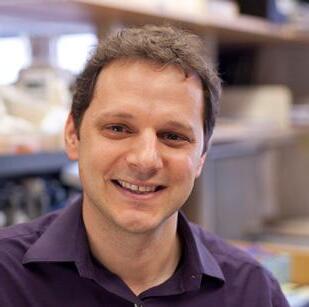
Research Areas: Epigenomics, transcriptomics, genome function, structural variation, imprinting, congenital disorders
Annemarie Stroustrup, MD, MPH

(Adjunct Associate Professor, Pediatrics and Environmental Medicine & Public Health)
Research Areas: Neurodevelopment, perinatal environmental exposures, identifying genetic etiologies of congenital disease
Shanna H. Swan, PhD
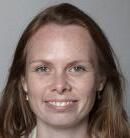

(Professor, Environmental Medicine & Public Health)
Research Areas: Prenatal exposures, sexually dimorphic development, phthalates, stress, anogenital distance, neurodevelopment, analgesics, glyphosate, acetaminophen
Pilar Trelles, MD

(Adjunct Assistant Professor, Psychiatry)
Research Areas: Autism spectrum disorder, neurodevelopmental disorders, health disparities
Bryn D. Webb, MD
(Adjunct Assistant Professor, Genetics and Genomic Sciences)
Research Areas: Identifying genetic etiologies of congenital anomalies, mitochondrial disorders, undiagnosed disease
Anusha Yeshokumar, MD

(Adjunct Assistant Clinical Professor, Pediatrics, and Neurology)
Research Areas: Autoimmune encephalitis, outcomes research, inflammatory biomarkers, cognition, behavior
The Mindich Child Health and Development Institute 17
OBESITY AND DIABETES
Sharon Baumel-Alterzon, PhD (Instructor, Medicine)
Research Areas: Beta-cell biology, oxidative stress, cell proliferation, cell cycle, cell division, apoptosis/cell death, diabetes, obesity, gene expressions, gene regulation, knockout mice, molecular biology, transcription factors
Ross L. Cagan, PhD
(Adjunct Professor, Cell, Developmental & Regenerative Biology)
Research Areas: Drosophila as a tool to develop therapeutics for cancer, diabetes, and rare mendelian diseases
Nathalie Chami, PhD


(Instructor, Environmental Medicine & Public Health)
Research Areas: Genetics of complex traits, monogenic disease, genetics of obesity and cardiometabolic outcomes
Lauryn Choleva, MD (Instructor, Pediatrics)
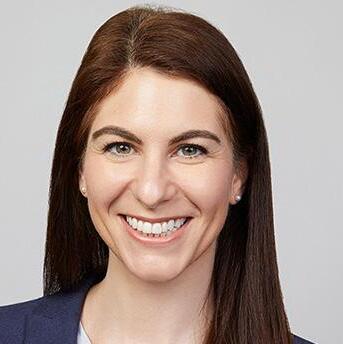
Research Areas: Type 2 diabetes, type 1 diabetes, hypoglycemia
Fernando Ferrer, MD, FACS, FAAP (Professor, Urology)
Research Areas: Cancer, bioactive lipids, renal injury, biomarkers, renal obstruction
Adolfo García-Ocaña, PhD (Professor, Medicine)


Research Areas: Diabetes, pancreatic beta cell biology
Allan C. Just, PhD (Assistant Professor, Environmental Medicine & Public Health)


Research Areas: Epigenomics, environmental exposures, endocrine disruptors, air pollution, obesity, birth outcomes
Joan Han, MD

(Chief, Division of Pediatric Endocrinology and Diabetes; Professor, Pediatrics)
Research Areas: Pediatric obesity, neuroendocrine regulation of energy balance, genetic obesity syndromes and disorders of the leptin pathway
The Mindich Child Health and Development Institute 18
OBESITY AND DIABETES - CONTINUED
Ruth J.F. Loos, PhD
(Professor, Environmental Medicine & Public Health; Charles Bronfman Professor in Personalized Medicine)
Research Areas: Genetics of obesity and related cardiometabolic traits, genetic epidemiology, epidemiology
Geming Lu, MD (Instructor, Medicine)
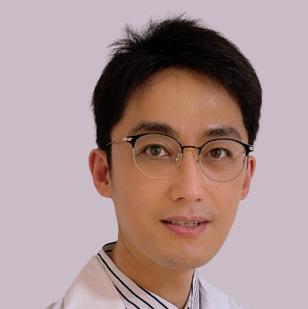
Research Areas: Type 1 diabetes, type 2 diabetes, autoimmune disorders (IBD and MS), immunometabolism, beta cell regeneration, multiomic data analysis
Donald K. Scott, PhD (Professor, Medicine)

Research Areas: Metabolic regulation of transcription, beta cell regeneration and preservation, diabetes
Sarah Stanley, PhD

(Associate Professor, Medicine, and Neuroscience)
Research Areas: Neural control of metabolism
Andrew F. Stewart, MD

(Professor, Diabetes, Obesity and Metabolism Institute, Irene and Dr. Arthur M. Fishberg Professor, Medicine)
Research Areas: Type 1 diabetes, type 2 diabetes, beta cell regeneration, drug discovery
Susan Teitelbaum, PhD

(Professor, Environmental Medicine & Public Health)
Research Areas: Environmental chemical exposure assessment, pubertal development, physical growth and development
Nita Vangeepuram, MD, MPH
(Assistant Professor, Pediatrics, Environmental Medicine & Public Health, Population and Health Science and Policy)
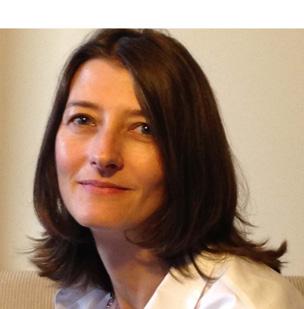
Research Areas: Youth diabetes prevention, community-based participatory research, health equity research
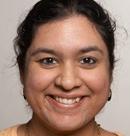
The Mindich Child Health and Development Institute 19
OBESITY AND DIABETES - CONTINUED
Ryan W. Walker, PhD

(Assistant Professor, Environmental Medicine & Public Health)
Research Areas: Clinical microbiome, obesity, nutrition, environmental exposures
Martin J. Walsh, PhD


(Professor, Pharmacological Sciences, Genetics and Genomic Sciences, and Pediatrics)
Research Areas: Chromatin biology, RNA biology and gene transcription in cancer, early development and metabolism
OTHER RESEARCH FOCUSES
James J. Bieker, PhD
(Professor, Cell, Developmental & Regenerative Biology)
Research Areas: Transcriptional regulation of gene expression in erythroid cells
Dusan Bogunovic, PhD

(Professor, Microbiology, Oncological Sciences, and Pediatrics)
Research Areas: Genetics of infectious and inflammatory diseases, type I interferons, Pseudo-TORCH syndrome, neurolisteriosis
Brian D. Brown, PhD
(Professor, Genetics and Genomic Sciences)

Research Areas: Immunology and immunotherapy, autoimmune disease, microRNA regulation, biotechnology
John Bucuvalas, MD (Professor, Pediatrics)
Research Areas: Outcomes after liver transplantation, allograft injury in pediatric liver transplant recipients

The Mindich Child Health and Development Institute 20
OTHER RESEARCH FOCUSES - CONTINUED
Minji Byun, PhD
(Adjunct Assistant Professor, Medicine)
Research Areas: Genetics of immune disorders, clonal hematopoiesis, immune dysregulation
Jaime Chu, MD (Assistant Professor, Pediatrics)
Research Areas: Disorders of glycosylation, cancer metabolism, liver fibrosis, environmental toxicants in liver disease
Charlotte Cunningham-Rundles, MD, PhD

(David S. Gottesman Professor, Medicine; Professor, Pediatrics)
Research Areas: Primary Immune Deficiency, B cells, antibody, B cell memory, hypogammaglobulinemia, immune reconstitution
Sarah Duncan-Park, PhD (Assistant Professor, Pediatrics)
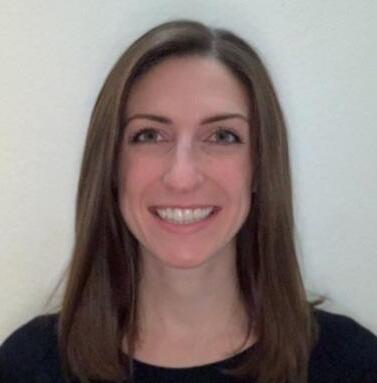
Research Areas: Behavioral health intervention development, psychosocial adjustment to pediatric chronic illness
David Dunkin, MD
(Associate Professor, Pediatrics)
Research Areas: Tolerance induction and therapeutics in inflammatory bowel disease, mechanisms of inflammatory diseases of the gastrointestinal tract
Chris Gennings, PhD

(Professor, Environmental Medicine & Public Health, and Population Health Science and Policy)
Research Areas: Biostatistical methods development for environmental health
Katherine Guttmann, MD, MBE

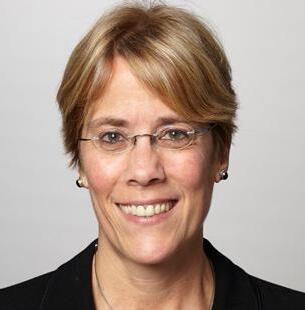
(Assistant Professor, Pediatrics)
Research Areas: Palliative care, family-centered care, parent-physician communication, research ethics
Shelley H. Liu, PhD



(Assistant Professor, Population Health Science and Policy)
Research Areas: Biostatistics, environmental mixtures, public health
The Mindich Child Health and Development Institute 21
OTHER RESEARCH FOCUSES - CONTINUED
Megan Januska, MD

(Assistant Professor, Pediatrics, and Genetics and Genomic Sciences)
Research Areas: Integrative genomics of pediatric lung development and disease states, including cystic fibrosis
Kaustav Mukherjee, PhD
(Instructor, Cell, Developmental & Regenerative Biology)
Research Areas: Hematopoietic transcription regulation, genomics and epigenetics, single-cell technologies, erythroid disorders
Praveen Raju, MD, PhD


(Associate Professor, Neurology, and Pediatrics)
Research Areas: Pediatric brain tumors, developmental neurobiology, BBB drug delivery
Michael Rendl, MD
(Professor, Cell, Developmental & Regenerative Biology, and Dermatology)
Research Areas: Stem cells, hair regeneration, morphogenesis
Jeffrey M. Saland, MD

(Chief, Pediatric Nephrology, and Hypertension; Professor, Pediatrics)
Research Areas: Kidney disease in children, lipoprotein metabolism in children with CKD, hemolytic uremic syndrome, primary hyperoxaluria
Lisa M. Satlin, MD

(Herbert H. Lehman Professor and Chair, Pediatrics)

Research Areas: Ontogeny and mechanoregulation of epithelial ion channels in secretory epithelia, generation and characterization of functional bioengineered kidneys
Eyal Shemesh, MD

(Professor, Pediatrics, and Psychiatry)
Research Areas: Remote intervention paradigms, biological correlates of non-adherent behaviors, multisite and multidisciplinary clinical trials
The Mindich Child Health and Development Institute 22
OTHER RESEARCH FOCUSES - CONTINUED
Christopher Sturgeon, PhD


(Associate Professor, Cell, Developmental & Regenerative Biology, and Medicine)
Research Areas: Hematopoiesis, development, pluripotent stem cells, adoptive immunotherapy
Rebecca Trachtman, MD
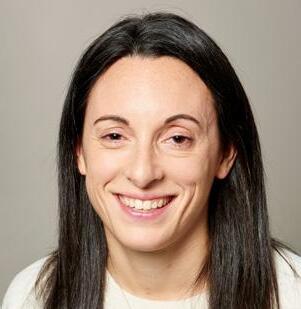
(Assistant Professor, Pediatrics)
Research Areas: Biomarkers, patient-reported outcomes in juvenile idiopathic arthritis
Ernest Turro, PhD

(Associate Professor, Genetics and Genomic Sciences)
Research Areas: Biostatistics, statistical genetics, functional genomics, Bayesian modeling, rare diseases, inherited blood disorders, primary immunodeficiencies, mitochondrial genetics
Elvin Wagenblast, PhD
(Assistant Professor, Oncological Sciences, and Pediatrics)
Research Areas: Blood stem cells, leukemia
The Mindich Child Health and Development Institute 23
FACULTY RESEARCH INTERACTIONS

Faculty Highlight: Avi Reichenberg, PhD


• Collaborator on environmental autism research
• Collaborator on Autism Risk and Maternal Cardiometabolic Health study
• Collaborator on Population-Based Autism Genetics and Environment study
Alex Kolevzon, MD

• Collaborator on environmental autism research
• Collaborator on Autism Risk and Maternal Cardiometabolic Health study
• Collaborator on Autism and Prenatal Endocrine Disruptors study
Dorothy E. Grice, MD
• Collaborator on Epidemiology of OCD and related disorders
Magdalena U. Janecka, PhD
• Mentor
• Collaborator on Maternal health in pregnancy and autism risk – genetic and non-genetic mechanisms
• Collaborator on Prenatal medication exposure in autism, birth complications, and developmental disabilities
• Collaborator on environmental autism research
Shanna H. Swan, PhD


• Collaborator on Autism Risk and Maternal Cardiometabolic Health study
• Collaborator on Autism and Prenatal Endocrine Disruptors study
Megan K. Horton, PhD, MPH


• Collaborator on Metal mixtures, exposure windows, and neurodevelopmental trajectories from adolescence to adulthood
• Collaborator on Early life exposure to metal mixtures and neuroimaging of internalizing behaviors in childhood
Anna-Sophie Rommel, PhD



• Collaborator on The longer-term impact of prenatal exposure to SARS-CoV-2 infection and the COVID-19 vaccine on behavior, cognition, and brain functioning in the child
Chris Gennings, PhD
• Collaborator on Autism and Prenatal Endocrine Disruptors study
The Mindich Child Health and Development Institute 25
Joseph D. Buxbaum, PhD
Paige M. Siper, PhD
Joseph D. Buxbaum, PhD
Alex Kolevzon, MD
Dorothy E. Grice, MD Magdalena U. Janecka, PhD
Paige M. Siper, PhD
Shanna H. Swan, PhD
Megan K. Horton, PhD, MPH Anna-Sophie Rommel, PhD
Chris Gennings, PhD
Faculty
Supinda Bunyavanich, MD, MPH




• Co-member of MCHDI Internal Advisory Board
Bruce D. Gelb, MD

• Mentor
• Co-sponsor for trainee fellowships David Gonzalez (F31) and Tasneem Ebrahim (AHA)
• Collaborator on mechanisms of de novo sarcomere formation
Magdalena U. Janecka, PhD
• Co-chair for MCHDI Incubator Faculty Meetings
Silvia De Rubeis, PhD
• Collaborator on “The role of RNA-binding protein DDX3X in neurodevelopmental disorders and congenital heart disease”
Joseph D. Buxbaum, PhD
• Collaborator on “The role of RNA-binding protein DDX3X in neurodevelopmental disorders and congenital heart disease”
• Co-member of MCHDI Internal Advisory Board
Robert S. Krauss, PhD


• Mentor
Andrew J. Sharp, PhD


• Collaborator, co-investigator on “Early mechanisms of cardiac specification” R01 HL134956
• Co-member of MCHDI Internal Advisory Board
• Collaborator, co-Investigator on MCHDI pilot award “Generating Cardiac Purkinje Cells from Human Pluripotent Stem Cells” (past)
• Co-author on “Foxa2 identifies a cardiac progenitor population with ventricular differentiation potential” by Bardot et al., Nat Comm 2017
David Dunkin, MD
• Co-chair for MCHDI Incubator Faculty Meetings (past)
Marek Mlodzik, PhD
• Mentor
Praveen Raju, MD, PhD

• Co-member of MSTP admissions committee
Christopher Sturgeon, PhD

• Collaborator on “Mechanisms of macrophage-myocyte interactions”

The Mindich Child Health and Development Institute 26
Supinda Bunyavanich, MD, MPH
Bruce D. Gelb, MD
Magdalena U. Janecka, PhD Silvia De Rubeis, PhD
Joseph D. Buxbaum, PhD
Robert S. Krauss, PhD
Andrew J. Sharp, PhD David Dunkin, MD
Marek Mlodzik, PhD
Praveen Raju, MD, PhD
Christopher Sturgeon, PhD
Highlight: Nicole Dubois, PhD

FACULTY HONORS/AWARDS
Tirtha K. Das, PhD, Co-Chair and Speaker, 63rd Annual Drosophila Conference, “Human Disease Modeling” oral platform presentation section and “Flies on Drugs” workshop
David Dunkin, MD, American Gastroenterological Association, AGA Fellow
Bruce D. Gelb, MD, Promotion to Dean of Child Health at the Icahn School of Medicine at Mount Sinai
Yuval Itan, PhD, Elected as a member to the Henry Kunkel Society (HKS)
Amy R. Kontorovich, MD, PhD, Promotion to Director of the New Mount Sinai Center for Inherited Cardiovascular Diseases
Dalila Pinto, PhD, Chair, Symposium “Autism Spectrum Disorders,” 24th Biennial Meeting of the International Society for Developmental Neuroscience (ISDN), Vancouver, May 8, 2022
FACULTY PUBLICATIONS
Fu JM, Satterstrom FK, Peng M, Brand H, Collins RL, … Barbosa M, … De Rubeis S, Buxbaum JD, Daly MJ, Devlin B, Roeder K, Sanders SJ, Talkowski ME. Rare coding variation provides insight into the genetic architecture and phenotypic context of autism. Nat Genet. 2022 Sep;54(9):1320-31.
Baumel-Alterzon S, Katz LS, Brill G, Jean-Pierre C, Li Y, Tse I, Biswal S, Garcia-Ocaña A, Scott DK. Nrf2 regulates β-cell mass by suppressing β-cell death and promoting β-cell proliferation. Diabetes. 2022 May 1;71(5):989-1011.
Lozano-Ojalvo D, Tyler SR, Aranda CJ, Wang J, Sicherer S, Sampson HA, … de Lafaille MC, Berin MC. Allergen recognition by specific effector th2 cells enables il-2-dependent activation of regulatory t-cell responses in humans Allergy. 2022 Sep 12.
Berin MC, Agashe C, Burks AW, Chiang D, Davidson WF, Dawson P, … Sicherer SH, … Sampson HA. Allergen-specific t cells and clinical features of food allergy: Lessons from cofar immunotherapy cohorts. J Allergy Clin Immunol. 2022 Apr;149(4):1373-82.e12.
Mukherjee K, Bieker JJ. Eklf/klf1 regulates erythroid transcription by its pioneering activity and selective control of rna pol ii pause-release. Cell Rep. 2022 Dec 20;41(12):111830.
Malle L, Marti-Fernandez M, Buta S, Richardson A, Bush D, Bogunovic D. Excessive negative regulation of type I interferon disrupts viral control in individuals with down syndrome. Immunity. 2022 Nov 8;55(11):2074-2084.e5.
Spaan AN, Neehus AL, Laplantine E, Staels F, Ogishi M, Seeleuthner Y, … Bogunovic D, … Casanova JL. Human otulin haploinsufficiency impairs cell-intrinsic immunity to staphylococcal α-toxin. Science. 2022 Jun 17;376(6599):eabm6380.
Martin-Fernandez M, Buta S, Le Voyer T, Li Z, Dynesen LT, Vuillier F, … Bogunovic D A partial form of inherited human usp18 deficiency underlies infection and inflammation. J Exp Med. 2022 Apr 4;219(4).
Busgang SA, Spear EA, Andra SS, Narasimhan S, Bragg JB, Renzetti S, … Gennings C, Stroustrup A Application of growth modeling to assess the impact of hospital-based phthalate exposure on preterm infant growth parameters during the neonatal intensive care unit hospitalization. Sci Total Environ. 2022 Dec 1;850:157830.
Seah C, Breen MS, Rusielewicz T, Bader HN, Xu C, Hunter CJ, … Yehuda R. Modeling gene × environment interactions in ptsd using human neurons reveals diagnosis-specific glucocorticoid-induced gene expression. Nat Neurosci. 2022 Nov;25(11):1434-45.
Cuddleston WH, Fan X, Sloofman L, Liang L, Mossotto E, Moore K, … Buxbaum JD, Breen MS Spatiotemporal and genetic regulation of a-to-i editing throughout human brain development. Cell Rep. 2022 Nov 1;41(5):111585.
Cuddleston WH, Li J, Fan X, Kozenkov A, Lalli M, Khalique S, … Breen MS Cellular and genetic drivers of rna editing variation in the human brain. Nat Commun. 2022 May 30;13(1):2997.
The Mindich Child Health and Development Institute 28
Svensson-Arvelund J, Cuadrado-Castano S, Pantsulaia G, Kim K, Aleynick M, Hammerich L, … Brown BD, Brody JD. Expanding cross-presenting dendritic cells enhances oncolytic virotherapy and is critical for long-term anti-tumor immunity. Nat Commun. 2022 Nov 22;13(1):7149.
Marron TU, Galsky MD, Taouli B, Fiel MI, Ward S, Kim E, … Brown BD, … Merad M. Neoadjuvant clinical trials provide a window of opportunity for cancer drug discovery. Nat Med. 2022 Apr;28(4):626-9.
Dhainaut M, Rose SA, Akturk G, Wroblewska A, Nielsen SR, Park ES, … Brown BD Spatial crispr genomics identifies regulators of the tumor microenvironment. Cell. 2022 Mar 31;185(7):1223-39.e20.
Soltys K, Mazariegos G, Bucuvalas J. Domino liver transplantation: Don’t slip in the pool. Liver Transpl. 2022 Dec;28(12):1829-30.
Lee-Sarwar KA, Chen YC, Lasky-Su J, Kelly RS, Zeiger RS, O’Connor GT, … Bunyavanich S, … Brennan PJ. Early-life fecal metabolomics of food allergy. Allergy. 2022 Nov 30.
Zhang L, Chun Y, Ho HE, Arditi Z, Lo T, Sajja S, … Wang J, Sicherer S, Bunyavanich S Multiscale study of the oral and gut environments in children with high- and low-threshold peanut allergy. J Allergy Clin Immunol. 2022 Sep;150(3):714-20.e2.
Melén E, Koppelman GH, Vicedo-Cabrera AM, Andersen ZJ, Bunyavanich S Allergies to food and airborne allergens in children and adolescents: Role of epigenetics in a changing environment. Lancet Child Adolesc Health. 2022 Aug 16.
Mattheisen M, Grove J, Als TD, Martin J, Voloudakis G, Meier S, … Buxbaum JD, … Børglum AD. Identification of shared and differentiating genetic architecture for autism spectrum disorder, attention-deficit hyperactivity disorder and case subgroups. Nat Genet. 2022 Oct;54(10):1470-8.
Trubetskoy V, Pardiñas AF, Qi T, Panagiotaropoulou G, Awasthi S, Bigdeli TB, … Reichenberg A, … Buxbaum JD, … O’Donovan MC. Mapping genomic loci implicates genes and synaptic biology in schizophrenia. Nature. 2022 Apr;604(7906):502-8.
Abyazi ML, Bell KA, Gyimesi G, Baker TS, Byun M, Ko HM, Cunningham-Rundles C, … Maglione PJ. Convergence of cytokine dysregulation and antibody deficiency in common variable immunodeficiency with inflammatory complications. J Allergy Clin Immunol. 2022 Jan;149(1):315-26.e9. Commun. 2022 Dec 8;13(1):7592.
Wheeler MM, Stilp AM, Rao S, Halldórsson BV, Beyter D, Wen J, … Chami N, … Reiner AP. Whole genome sequencing identifies structural variants contributing to hematologic traits in the nhlbi topmed program Nat
Wainschtein P, Jain D, Zheng Z, Cupples LA, Shadyab AH, McKnight B, … Chami N, … Loos RJF, … Visscher PM. Assessing the contribution of rare variants to complex trait heritability from whole-genome sequence data Nat Genet. 2022 Mar;54(3):263-73.
Kaur K, Lesseur C, Chen L, Andra SS, Narasimhan S, Pulivarthi D, … Chen J. Cross-sectional associations of maternal pfas exposure on sars-cov-2 igg antibody levels during pregnancy. Environ Res. 2022 Dec 14;219:115067.
Morrison JK, DeRossi C, Alter IL, Nayar S, Giri M, Zhang C, … Chu J. Single-cell transcriptomics reveals conserved cell identities and fibrogenic phenotypes in zebrafish and human liver. Hepatol Commun. 2022 Jul;6(7):1711-24.
Otani IM, Lehman HK, Jongco AM, Tsao LR, Azar AE, Tarrant TK, … Cunningham-Rundles C, … Barmettler S. Practical guidance for the diagnosis and management of secondary hypogammaglobulinemia: A work group report of the aaaai primary immunodeficiency and altered immune response committees. J Allergy Clin Immunol. 2022 May;149(5):1525-60.
LaBere B, Gutierrez MJ, Wright H, Garabedian E, Ochs HD, Fuleihan RL, … Cunningham-Rundles C, … Chen K. Chronic granulomatous disease with inflammatory bowel disease: Clinical presentation, treatment, and outcomes from the usidnet registry. J Allergy Clin Immunol Pract. 2022 May;10(5):1325-33.e5.
Pham MN, Fuleihan RL, Sullivan KE, Cunningham-Rundles C Ocular manifestations in primary immunodeficiency disorders: A report from the united states immunodeficiency network (usidnet) registry. J Allergy Clin
The Mindich Child Health and Development Institute 29
Immunol Pract. 2022 Apr 12.
Aranda CJ, Gonzalez-Kozlova E, Saunders SP, Fernandes-Braga W, Ota M, Narayanan S, … Curotto de Lafaille MA. Igg memory b cells expressing il4r and fcer2 are associated with atopic diseases. Allergy. 2022 Nov 29.
Wang YH, Noyer L, Kahlfuss S, Raphae D, Tao AY, Kaufmann U, … Curotto de Lafaille MA, Feske S. Distinct roles of ORAI1 in T cell-mediated allergic airway inflammation and immunity to influenza A virus infection. Science Adv 2022 Oct 7;8(40):eabn6552.
Kontaridis MI, Roberts AE, Schill L, Schoyer L, Stronach B, Andelfinger G, … Das TK, … Zenker M. The seventh international rasopathies symposium: Pathways to a cure-expanding knowledge, enhancing research, and therapeutic discovery. Am J Med Genet A. 2022 Jun;188(6):1915-27.
Pavinato L, Delle Vedove A, Carli D, Ferrero M, Carestiato S, Howe JL, … De Rubeis S, Buxbaum JD, … Brusco A. Caprin1 haploinsufficiency causes a neurodevelopmental disorder with language impairment, adhd and asd. Brain. 2022 Jul 27.
Campisi L, Chizari S, Ho JSY, Gromova A, Arnold FJ, Mosca L, … De Rubeis S, … Byun M, …Marazzi I. Clonally expanded cd8 t cells characterize amyotrophic lateral sclerosis-4. Nature. 2022 Jun;606(7916):945-52.
Gonzalez DM, Schrode N, Ebrahim TAM, Broguiere N, Rossi G, Drakhlis L, … Dubois NC Dissecting mechanisms of chamber-specific cardiac differentiation and its perturbation following retinoic acid exposure. Development. 2022 Jul 1;149(13).
Dunkin D, Merlino F, Correale C, Yeretssian G, Marinelli L, Roda G. A small ceacam5 peptide restores the protective function of cd8(+) regulatory t cells in crohn’s disease. Gastroenterology. 2022 Oct;163(4):1090-3.e3.
Duncan-Park S, Danziger-Isakov L, Armstrong B, Williams N, Odim J, Shemesh E, … Annunziato R. Posttraumatic stress and medication adherence in pediatric transplant recipients. Am J Transplant. 2022 Mar;22(3):937-46.
Noh MR, Jang HS, Salem FE, Ferrer FA, Kim J, Padanilam BJ. Epoxyeicosatrienoic acid administration or soluble epoxide hydrolase inhibition attenuates renal fibrogenesis in obstructive nephropathy. Am J Physiol Renal Physiol. 2022 Dec 8.
Jang HS, Noh MR, Plumb T, Lee K, He JC, Ferrer FA, Padanilam BJ. Hepatic and proximal tubule angiotensinogen play distinct roles in kidney dysfunction, glomerular and tubular injury, and fibrosis progression. Am J Physiol Renal Physiol. 2022 Oct 1;323(4):F435-f46.
Isenstein EL, Grosman HE, Guillory SB, Zhang Y, Barkley S, McLaughlin CS, … Siper PM, Buxbaum JD, Kolevzon A, Foss-Feig JH Neural markers of auditory response and habituation in phelan-mcdermid syndrome. Front Neurosci. 2022;16:815933.
Patel R, Parmar N, Rathwa N, Palit SP, Li Y, Garcia-Ocaña A, Begum R. A novel therapeutic combination of sitagliptin and melatonin regenerates pancreatic β-cells in mouse and human islets. Biochim Biophys Acta Mol Cell Res. 2022 Aug;1869(8):119263.
Willcox JAL, Geiger JT, Morton SU, McKean D, Quiat D, Gorham JM, … Gelb B, … Seidman CE. Neither cardiac mitochondrial DNA variation or copy number contribute to congenital heart disease risk. Am J Hum Genet. 2022 Apr 7.
Gonzalez-Teran B, Pittman M, Felix F, Thomas R, Richmond-Buccola D, Hüttenhain R, … Gelb BD, … Srivastava D. Transcription factor protein interactomes reveal genetic determinants in heart disease. Cell. 2022 Mar 3;185(5):794814.e30.
Sanders AP, Gennings C, Tamayo-Ortiz M, Mistry S, Pantic I, Martinez M, … Austin C. Prenatal and early childhood critical windows for the association of nephrotoxic metal and metalloid mixtures with kidney function. Environ Int. 2022 Jun 27;166:107361.
Caporale N, Leemans M, Birgersson L, Germain PL, Cheroni C, Borbély G, … Gennings C, … Testa G. From cohorts to
The Mindich Child Health and Development Institute 30
molecules: Adverse impacts of endocrine disrupting mixtures. Science. 2022 Feb 18;375(6582):eabe8244.
Mahjani B, Klei L, Mattheisen M, Halvorsen MW, Reichenberg A, Roeder K, … Buxbaum JD, … Grice DE The genetic architecture of obsessive-compulsive disorder: Contribution of liability to ocd from alleles across the frequency spectrum. Am J Psychiatry. 2022 Mar;179(3):216-25.
Guttmann K, Kelley A, Weintraub A, Boss R. Defining neonatal serious illness. J Palliat Med. 2022 Nov;25(11):1655-60.
Richter F, Strasser AS, Suarez-Farinas M, Zhao S, Nadkarni GN, Jabs EW, Guttmann K, Glicksberg BS. Neonatal outcomes during the covid-19 pandemic in new york city. Pediatr Res. 2022 Feb;91(3):477-9.
Stephenson EJ, Stayton AS, Sethuraman A, Rao PK, Meyer A, Gomes CK, … Han JC Chronic intake of high dietary sucrose induces sexually dimorphic metabolic adaptations in mouse liver and adipose tissue. Nat Commun 2022 Oct 13;13(1):6062.
Wang Y, Wang Z, Li K, Xiang W, Chen B, Jin L, Hao K Lncrnas functioned as cerna to sponge mir-15a-5p affects the prognosis of pancreatic adenocarcinoma and correlates with tumor immune infiltration. Front Genet. 2022;13:874667.
Tekola-Ayele F, Zeng X, Chatterjee S, Ouidir M, Lesseur C, Hao K, Chen J, … Wapner R. Placental multi-omics integration identifies candidate functional genes for birthweight. Nat Commun. 2022 May 2;13(1):2384.
Horton MK, McCurdy S, Shao X, Bellesis K, Chinn T, Schaefer C, Barcellos LF. Case-control study of adverse childhood experiences and multiple sclerosis risk and clinical outcomes. PLoS One. 2022;17(1):e0262093.
Fang M, Su Z, Abolhassani H, Itan Y, Jin X, Hammarström L. Vippid: A gene-specific single nucleotide variant pathogenicity prediction tool for primary immunodeficiency diseases. Brief Bioinform. 2022 Sep 20;23(5).
Pijnenburg LJ, Kaplun A, de Haan L, Janecka M, Smith L, Reichenberg A, … Velthorst E. Autistic traits and alcohol use in adolescents within the general population. Eur Child Adolesc Psychiatry. 2022 Mar 23.
Januska MN, Walsh MJ Single-cell rna-sequencing reveals new basic and translational insights in the cystic fibrosis lung. Am J Respir Cell Mol Biol. 2022 Oct 4.
Gutiérrez-Avila I, Arfer KB, Carrión D, Rush J, Kloog I, Naeger AR, … Just AC Prediction of daily mean and one-hour maximum pm(2.5) concentrations and applications in central mexico using satellite-based machine-learning models. J Expo Sci Environ Epidemiol. 2022 Nov;32(6):917-25.
Kupsco A, Wu H, Calafat AM, Kioumourtzoglou MA, Cantoral A, Tamayo-Ortiz M, … Just AC. Prenatal maternal phthalate exposures and trajectories of childhood adiposity from four to twelve years. Environ Res. 2022 Mar;204(Pt B):112111.
Levy T, Lerman B, Halpern D, Frank Y, Layton C, Zweifach J, Siper PM, Buxbaum JD, Kolevzon A Champ1 disorder is associated with a complex neurobehavioral phenotype including autism, adhd, repetitive behaviors and sensory symptoms. Hum Mol Genet. 2022 Aug 17;31(15):2582-94.
Kolevzon A, Breen MS, Siper PM, Halpern D, Frank Y, Rieger H, … Trelles MP, … Buxbaum JD. Clinical trial of insulin-like growth factor-1 in phelan-mcdermid syndrome. Mol Autism. 2022 Apr 8;13(1):17.
Fernández-Castañeda A, Lu P, Geraghty AC, Song E, Lee MH, Wood J, … Kontorovich A, … Monje M. Mild respiratory covid can cause multi-lineage neural cell and myelin dysregulation. Cell. 2022 Jul 7;185(14):2452-68.e16.
Liu SH, Kuiper JR, Chen Y, Feuerstahler L, Teresi J, Buckley JP. Developing an exposure burden score for chemical mixtures using item response theory, with applications to pfas mixtures. Environ Health Perspect. 2022 Nov;130(11):117001.
Huang J, Huffman JE, Huang Y, Do Valle Í, Assimes TL, Raghavan S, … Loos RJF, … O’Donnell CJ. Genomics and phenomics of body mass index reveals a complex disease network. Nat Commun. 2022 Dec 29;13(1):7973.
Yengo L, Vedantam S, Marouli E, Sidorenko J, Bartell E, Sakaue S, … Loos RJF, … Hirschhorn JN. A saturated map of
The Mindich Child Health and Development Institute 31
common genetic variants associated with human height. Nature. 2022 Oct;610(7933):704-12.
Selvaraj MS, Li X, Li Z, Pampana A, Zhang DY, Park J, … Loos RJF, … Natarajan P. Whole genome sequence analysis of blood lipid levels in >66,000 individuals. Nat Commun. 2022 Oct 11;13(1):5995.
Zhu Q, Yang S, Wei C, Lu G, Lee K, He JC, Liu R, Zhong Y. Puerarin attenuates diabetic kidney injury through interaction with guanidine nucleotide-binding protein gi subunit alpha-1 (gnai1) subunit. J Cell Mol Med. 2022 Jul;26(14):3816-27.
Mahjani B, Birnbaum R, Buxbaum Grice A, Cappi C, Jung S, Avila MN, Reichenberg A, … Buxbaum JD, Grice DE Phenotypic impact of rare potentially damaging copy number variation in obsessive-compulsive disorder and chronic tic disorders. Genes (Basel). 2022 Oct 5;13(10).
Aharon D, Marlow FL Sexual determination in zebrafish. Cell Mol Life Sci. 2021 Dec 22;79(1):8.
Koca Y, Vuong LT, Singh J, Giniger E, Mlodzik M Notch-dependent abl signaling regulates cell motility during ommatidial rotation in drosophila. Cell Rep. 2022 Dec 6;41(10):111788.
Norman KJ, Bateh J, Maccario P, Cho C, Caro K, Nishioka T, … Morishita H Frontal-sensory cortical projections become dispensable for attentional performance upon a reduction of task demand in mice. Front Neurosci. 2021;15:775256.
Jonas K, Lian W, Callahan J, Ruggero CJ, Clouston S, Reichenberg A, … Kotov R. The course of general cognitive ability in individuals with psychotic disorders. JAMA Psychiatry. 2022 Jul 1;79(7):659-66.
Persson M, Reichenberg A, Andersson Franko M, Sandin S. Maternal type 1 diabetes, pre-term birth and risk of autism spectrum disorder-a prospective cohort study. Int J Epidemiol. 2022 Jun 3.
Suprun M, Bahnson HT, du Toit G, Lack G, Suarez-Farinas M, Sampson HA In children with eczema, expansion of epitope-specific ige is associated with peanut allergy at 5 years of age. Allergy. 2022 Nov 2.
Suprun M, Kearney P, Hayward C, Butler H, Getts R, Sicherer SH, … Sampson HA Predicting probability of tolerating discrete amounts of peanut protein in allergic children using epitope-specific ige antibody profiling. Allergy. 2022 Oct;77(10):3061-9.
Jones SM, Kim EH, Nadeau KC, Nowak-Wegrzyn A, Wood RA, Sampson HA, … Wang J, … Burks AW. Efficacy and safety of oral immunotherapy in children aged 1-3 years with peanut allergy (the immune tolerance network impact trial): A randomised placebo-controlled study. Lancet. 2022 Jan 22;399(10322):359-71.
Rizki-Safitri A, Gupta N, Hiratsuka K, Kobayashi K, Zhang C, Ida K, Satlin LM, Morizane R. Live functional assays reveal longitudinal maturation of transepithelial transport in kidney organoids. Front Cell Dev Biol. 2022;10:978888.
Hansen J, Sealfon R, Menon R, Eadon MT, Lake BB, Steck B, … Satlin LM, … Azeloglu EU. A reference tissue atlas for the human kidney. Sci Adv. 2022 Jun 10;8(23):eabn4965.
Katz LS, Brill G, Zhang P, Kumar A, Baumel-Alterzon S, Honig LB, Gómez-Banoy N, … Lambertini L, … Stewart AF, … Garcia-Ocaña A, Scott DK. Maladaptive positive feedback production of chrebpβ underlies glucotoxic β-cell failure. Nat Commun. 2022 Jul 30;13(1):4423.
Garg P, Jadhav B, Lee W, Rodriguez OL, Martin-Trujillo A, Sharp AJ. A phenome-wide association study identifies effects of copy-number variation of vntrs and multicopy genes on multiple human traits. Am J Hum Genet. 2022 Jun 2;109(6):1065-76.
Birnbaum R, Mahjani B, Loos RJF, Sharp AJ Clinical characterization of copy number variants associated with neurodevelopmental disorders in a large-scale multiancestry biobank. JAMA Psychiatry. 2022 Mar 1;79(3):2509.
Zhang S, Kattan JD, Baker MG, Oriel RC, Tsuang AJ, Sicherer SH, … Cox AL. Successful baked egg and baked milk oral immunotherapy in a pediatric cohort. J Allergy Clin Immunol Pract. 2022 Nov 9.
The Mindich Child Health and Development Institute 32
Liu EG, Zhang B, Martin V, Anthonypillai J, Kraft M, Grishin A, … Sampson H, … Eisenbarth SC. Food-specific immunoglobulin a does not correlate with natural tolerance to peanut or egg allergens. Sci Transl Med. 2022 Nov 16;14(671):eabq0599.
Sicherer SH, Abrams EM, Nowak-Wegrzyn A, Hourihane JO. Managing food allergy when the patient is not highly allergic. J Allergy Clin Immunol Pract. 2022 Jan;10(1):46-55.
Siper PM, Rowe MA, Guillory SB, Rouhandeh AA, George-Jones JL, Tavassoli T, … Trelles MP, … Buxbaum JD, Kolevzon A Visual evoked potential abnormalities in phelan-mcdermid syndrome. J Am Acad Child Adolesc Psychiatry. 2022 Apr;61(4):565-74.e1.
Wang P, Karakose E, Argmann C, Wang H, Balev M, Brody RI, … Choleva L, … Scott DK, Lambertini L, … Stewart AF Disrupting the dream complex enables proliferation of adult human pancreatic β cells. J Clin Invest. 2022 Aug 1;132(15).
Luff SA, Creamer JP, Valsoni S, Dege C, Scarfò R, Dacunto A, … Sturgeon CM. Identification of a retinoic acid-dependent haemogenic endothelial progenitor from human pluripotent stem cells. Nat Cell Biol. 2022 May;24(5):616-624.
Welch BM, Keil AP, Buckley JP, Calafat AM, Christenbury KE, Engel SM, … Swan SH, … Schmidt RJ. Associations between prenatal urinary biomarkers of phthalate exposure and preterm birth: A pooled study of 16 us cohorts. JAMA Pediatr. 2022 Sep 1;176(9):895-905.
Yu M, Teitelbaum SL, Dolios G, Dang LT, Tu P, Wolff MS, Petrick LM. Molecular gatekeeper discovery: Workflow for linking multiple exposure biomarkers to metabolomics. Environ Sci Technol. 2022 May 17;56(10):6162-71.
Barupal DK, Mahajan P, Fakouri-Baygi S, Wright RO, Arora M, Teitelbaum SL. Ccdb: A database for exploring inter-chemical correlations in metabolomics and exposomics datasets. Environ Int. 2022 Jun;164:107240.
Dixon PH, Levine AP, Cebola I, Chan MMY, Amin AS, Aich A, … Genomics England Research Consortium Collaborators (Turro E) … Williamson C. GWAS meta-analysis of intrahepatic cholestasis of pregnancy implicates multiple hepatic genes and regulatory elements. Nat Commun. 2022 Aug 17;13(1):4840.
Liu J, Ma J, Orekoya O, Vangeepuram N, Liu J. Trends in metabolic syndrome among us youth, from 1999 to 2018. JAMA Pediatr. 2022 Oct 1;176(10):1043-5.
McAlpin N, Elaiho CR, Khan F, Cruceta C, Goytia C, Vangeepuram N Use of focus groups to inform a new community-based youth diabetes prevention program. Int J Environ Res Public Health. 2022 Aug 5;19(15).
Sung K, Kurowski A, Lansiquot C, Wan KK, Patnaik S, Walsh MJ, Lazarus MB. Selective inhibitors of autophagy reveal new link between the cell cycle and autophagy and lead to discovery of novel synergistic drug combinations. ACS Chem Biol. 2022 Dec 16;17(12):3290-7.
Khan DA, Banerji A, Blumenthal KG, Phillips EJ, Solensky R, White AA, … Wang J Drug allergy: A 2022 practice parameter update. J Allergy Clin Immunol. 2022 Dec;150(6):1333-93.
Rank MA, Chu DK, Bognanni A, Oykhman P, Bernstein JA, Ellis AK, … Wang J, Peters AT. The joint task force on practice parameters grade guidelines for the medical management of chronic rhinosinusitis with nasal polyposis. J Allergy Clin Immunol. 2022 Nov 9.
Ko J, Zhu S, Wang J. Changes in infant food-specific serum ige testing from 2015 to 2020. J Allergy Clin Immunol Pract. 2022 Nov 19.
Prasun P, Evans A, Cork E, Houten SM, Webb BD A novel deleterious etfa promoter variant causative of multiple acyl-coa dehydrogenase deficiency. Am J Med Genet A. 2022 Dec 28.
The Mindich Child Health and Development Institute 33
GRANTS
MATERIAL TRANSFER AGREEMENTS/LICENSES
The Mindich Child Health and Development Institute 34 Research Focus Outgoing Material Transfer Agreements (#) Licenses (#) Neurodevelopmental disorders 3 18 Cardiovascular disease 1 1 Diabetes and Obesity 1 8 Allergy and Asthma 0 0 Others 1 2 Total 6 29 Licenses Total Number Antigens/Antibodies 6 Reagents/Methods/Cell Lines 9 Genes/Adapters/Vectors/Oligonucleotides 7 Gene Testing/Therapeutics 4 Mouse and Cell Models 3 Total 29
AGENCY NAME Funding from New Grants ($) Funding from New & Existing Grants ($) National Institute of Allergy and Infectious Diseases/NIH/DHHS 2,907,000 9,354,985 National Institute of Mental Health/NIH/DHHS 2,196,686 7,775,335 National Institute of Child Health and Human Development/NIH/DHHS 1,290,846 2,763,785 National Institute of Environmental Health Sciences/NIH/DHHS 1,259,559 5,475,318 National Institute of Diabetes and Digestive and Kidney Diseases/NIH/DHHS 722,990 9,289,212 National Center for Advancing Translational Sciences/NIH/DHHS 338,000 338,000 Additional Ventures Foundation 333,847 333,847 ChadTough Defeat DIPG Foundation 200,000 200,000 Biomarin Pharmaceutical 171,186 171,186 National Institute on Aging/NIH/DHHS 166,240 335,240 Leducq Foundation (Fondation Leducq) 154,935 154,935 University of Colorado 154,194 154,194 Simons Foundation 150,000 400,000 International OCD Foundation 100,000 100,000 Rhythm Pharmaceuticals, Inc. 76,369 76,369 American Society Of Hematology 62,500 62,500 FRAXA Research Foundation 50,000 50,000 Celgene International II Sarl 41,408 41,408 Benaroya Research Institute at Virginia 27,755 2,469,900 Siolta Therapeutics 1,255 1,255 National Heart, Lung, and Blood Institute/NIH/DHHS 0 3,779,037 National Institute of Arthritis & Musculoskeletal & Skin Diseases/NIH/DHHS 0 2,666,316 National Institute of Neurological Disorders And Stroke/NIH/DHHS 0 1,300,321 Johns Hopkins University Medical School 0 1,124,096 National Institute of General Medical Sciences/NIH/DHHS 0 1,098,774 National Eye Institute/NIH/DHHS 0 940,159 Albert Einstein College of Medicine 0 870,771 National Center for Complementary and Integrative Health/NIH/DHHS 0 707,878 National Institute of Dental and Craniofacial Research/NIH/DHHS 0 567,838 University of Wisconsin-Madison 0 390,167 New York State Stem Cell Board 0 363,550 Rutgers 0 336,207 Emory University 0 312,409 Montefiore Hospital 0 243,068 Columbia University 0 224,306 Johns Hopkins University 0 200,000 President and Fellows of Harvard College 0 183,846 Children’s Hospital Pittsburgh 0 124,796 Massachusetts General Hospital 0 107,509 Food Allergy Research & Education 0 100,000 University of Washington 0 100,000 Cystic Fibrosis Foundation 0 99,979 Van Andel Institute 0 83,013 Vanderbilt University Medical Center 0 77,540 Broad Institute 0 66,478 The Johns Hopkins University 0 52,069 University of Cambridge 0 51,952 Jounce Therapeutics 0 50,850 University of Pittsburgh 0 50,850 Children’s Hospital Med. Center, Ohio 0 50,000 Alex’s Lemonade Stand Foundation for Childhood Cancer 0 50,000 Tufts University 0 43,739 Ann & Robert H. Lurie Children’s Hospital of Chicago 0 42,968 Washington University School of Medicine in St. Louis 0 42,721 Washington University 0 41,951 Us-Israel Binational Science Foundation 0 40,000 Brain and Behavior Research Foundation 0 35,000 Hirschl/Weill-Caulier Trust 0 35,000 European Commission 0 32,185 Virginia Commonwealth University 0 31,002 Leukemia and Lymphoma Society 0 27,824 Cincinnati Children’s Hospital 0 9,000 Total 10,404,770 56,302,639
PILOT PROJECTS FUNDED FOR 2021-2022

TRAINEE PILOT AWARDS
Two new trainee awardees were selected for the trainee pilot program in the amount of $10K over a one-year period. The purpose of the program is to support postdoctoral/clinical fellows or PhD/MD-PhD students in pursuing an independently funded research project that is separate from their ongoing projects under their current Principal Investigator/mentor. Successful applications were required to a) demonstrate that they can achieve independence and will generate preliminary data that could lead to career development or other grants and b) be relevant to children’s health.
Bhavana Shewale
PhD Candidate, Cell, Developmental & Regenerative Biology
Project Title: Investigating the Role of Rho-Signaling in Cardiac Actin Nucleation
During De Novo Sarcomerogenesis
Primary Mentor: Nicole Dubois, PhD, Associate Professor, Cell, Developmental & Regenerative Biology, Mindich Child Health and Development Institute

Secondary Mentors: Robert Krauss, PhD, Professor & Program Director, Cell, Developmental & Regenerative Biology
Marek Mlodzik, PhD, Professor & Chair, Cell, Developmental & Regenerative Biology
FACULTY PILOT AWARDS
Three pilot projects were selected for $75K in institutional funding for a one-year period starting March 1, 2022. The purpose of the pilot program is to provide MCHDI faculty with funding for initial stages of research projects, with the goal of generating sufficient data to apply for larger, external grants. Projects are encouraged that are likely to: a) improve children’s health, b) promote collaboration within the MCHDI, and c) leverage additional extramural funding for the Principal Investigators (PIs).
Project Title: Genotype-Phenotype Correlations in Cardiac and Skeletal Muscle of Fatty Acid Oxidation Deficiencies

Principal Investigators: Nicole C. Dubois, PhD (Communicating PI), Sander Houten, PhD (Co-PI), George Diaz, MD, PhD (Co-I), Nenad Bursac, PhD (Co-I), Justin Cross, PhD (Co-I)
Nicole C. Dubois, PhD (Communicating PI)
Associate Professor, Cell, Developmental & Regenerative Biology
Mindich Child Health and Development Institute
Black Family Stem Cell Institute
Cardiovascular Research Institute
Sander Houten, PhD (Co-PI) Associate Professor, Genetics and Genomic Sciences

The Mindich Child Health and Development Institute 36
FACULTY PILOT AWARDS - CONTINUED
George Diaz, MD, PhD (Co-I)

Professor, Genetics and Genomic Sciences and Pediatrics
Justin Cross, PhD (Co-I) Director, Donald B. and Catherine C. Marron Cancer Metabolism Center Memorial Sloan Kettering Cancer Center, New York
Nenad Bursac, PhD (Co-I) Professor, Biomedical Engineering and Cell Biology


Duke Cancer Institute Director of Duke Regeneration Center
Duke University, Durham
Project Title: Immunophenotypic Comparison of Systemic Juvenile Idiopathic Arthritis and Multisystem Inflammatory Syndrome in Children
Principal Investigators: Rebecca Trachtman, MD (Communicating PI), and Dusan Bogunovic, PhD (Co-PI)
Rebecca Trachtman, MD (Communicating PI)

Assistant Professor, Pediatrics
Mindich Child Health and Development Institute
Dusan Bogunovic, PhD (Co-PI)

Professor, Pediatrics, Microbiology, and Oncological Sciences
Mindich Child Health and Development Institute
Director, Center for Inborn
Errors of Immunity
Precision Immunology Institute
The Mindich Child Health and Development Institute 37
FACULTY PILOT AWARDS - CONTINUED
Project Title: Whole-Genome Sequencing of Neonatal Fatalities
Principal Investigators: Ernest Turro, PhD (Communicating PI), Felix Richter, MD, PhD (Co-I), Katherine Guttmann, MD, MBE (Co-PI), Mafalda Barbosa, MD, PhD (Co-PI)
Ernest Turro, PhD (Communicating PI) Associate Professor, Genetics and Genomic Sciences
Mindich Child Health and Development Institute Charles Bronfman Institute for Personalized Medicine
Katherine Guttmann, MD, MBE (Co-PI) Assistant Professor, Pediatrics

Mindich Child Health and Development Institute
ANNUAL RETREAT
Our 10th Annual Retreat was hosted at the Harmonie Club on November 30, 2022, with ~120 faculty, trainees, staff, and volunteers at the event. It was a long-awaited opportunity to reconnect with colleagues in person in the midst of a pandemic that has devastated many, and affected us all. The retreat planning committee was composed of our MCHDI Director, Bruce Gelb, MD, Committee Chair, Florence Marlow, PhD, MCHDI faculty members, Ernest Turro, PhD, and Jennifer Foss-Feig, PhD, and trainee leadership committee member, Vahe Khachadourian, PhD. Our keynote speaker and panelist was Lilianna Solnica-Krezel, PhD (Alan A. and Edith L. Wolff Distinguished Professor and Head Department of Developmental Biology, Co-Director, Center of Regenerative Medicine, Washington University School of Medicine) who presented on the topic “Forward and Reverse in Zebrafish to Understand Development and Disease.” Our panel on “Beating Burnout, Work/Life Balance in Academia and Mental Health Resources” were also led
Felix Richter, MD, PhD (Co-I) Pediatrics Resident Physician


Mindich Child Health and Development Institute
Mafalda Barbosa, MD, PhD (Co-PI)

Assistant Professor, Genetics and Genomic Sciences
Mindich Child Health and Development Institute
by Ashley Doukas, PhD (Associate Clinical Director, The Center for Stress, Resilience, and Personal Growth), Acanthus Fairley, LCSW (Workforce Retention Coordinator), Employee Assistance Program, and Basil Hanss, PhD (Senior Associate Dean of Postdoctoral and Student Affairs) who shared their personal experience and provided mental health resources for our audience.
We congratulated our Young Investigators Competition (YIC) winners in the postdoctoral division, Daniel Greene, PhD (PI: Ernest Turro, PhD) and predoctoral winners, Michael Espino Horesh (PI: Dusan Bogunovic, PhD) and Rollie Hampton (PIs: Sarah Stanley, PhD, and Adolfo Garcia-Ocaña, PhD). The awardees for best posters selected by judges were Clifford Liu, MS (PI: Bruce Gelb, MD), Lauren Dierdoff (PI: Silvia De Rubeis, PhD), Christos Sazeides, MS (PI: Dusan Bogunovic, PhD) and the crowd favorite voted by attendees, Mariana Waldetario, PhD (PI: Maria Lafaille, PhD).
The Mindich Child Health and Development Institute 38
COMMUNICATIONS
Website
MCHDI delivers the latest updates on research advancements, events, and news, both internally and externally, via various communications channels. Below is information about the MCHDI website, newsletter, and social media platforms.
Our website includes detailed information about our signature programs, shared resources, trainee education, and employment opportunities. You can also find our complete list of faculty and links to their research websites as well as the latest press releases featuring our faculty. Our annual reports and MCHDI newsletters are also accessible via our website. Please visit our website at www.mountsinai.org/mchdi.

Newsletter
The MCHDI Developmental Outcomes is a biannual newsletter distributed internally to faculty, trainees, and other Institute affiliates to highlight important research breakthroughs, publications, awards, and events within MCHDI. View our latest newsletters at http://icahn. mssm.edu/research/mindich/about/newsletters

Facebook
Our official MCHDI Facebook page was launched in 2014 and currently has 500+ likes and followers. Our team posts almost daily to share updates on faculty research, seminars, and events, and other information relevant to children’s health. Please like and follow our page at www.facebook.com/mindichchdi.


Twitter
Our tweets are streaming on our website in real time. Follow or tweet to us @MindichCHDI or visit our website at www.mountsinai.org/mchdi.
The Mindich Child Health and Development Institute 39
SHARED RESOURCES

GRANT FORWARD
Grant Forward is a pre-award funding database with a comprehensive list of federal, foundation, and other funding sources. It offers a user-friendly search interface, automated e-mails alert, and tailored grant recommendations. Grant Forward subscriptions for MCHDI faculty and trainees are covered by our Institute.
To sign up, please visit: https://www.grantforward.com
BIOME BIOBANK
The BioMe Biobank contains the largest collection of DNA and plasma samples at Mount Sinai, enabling high-throughput disease genotyping and phenotyping while maintaining patient confidentiality through the Epic electronic medical record (EMR). The goal is to integrate patient clinical care information and research data. Observational epidemiologic studies of children have expanded in the past decade in response to the rising prevalence of childhood diseases, including obesity, autism, and asthma and of environmental risk factors such as lead and pesticides, and the ability to genotype DNA has enabled further inquiry into the genetic basis of childhood diseases. MCHDI, in collaboration with the Charles R. Bronfman Institute for Personalized Medicine, is funding the collection of DNA samples from pediatric patients with allergies, and since February 2012, the Jaffe Food Allergy Institute has recruited >1000 enrollees. The pediatric cohort is composed of samples from diverse racial and ethnic groups.
For more information, please visit:
www.icahn.mssm.edu/research/institutes/institute-for-personalized-medicine/innovation-and-technology/biome-platform
BIOREPOSITORY CORE SHARED RESOURCE FACILITY
The biorepository CORE facility provides basic histology services such as processing and embedding section fixed and frozen tissues from animal or human sources. In addition, services include DNA/RNA/miRNA extractions, preparing and analyzing tissue microarrays, and supporting functions for tissue procurement, both from consented and anonymized collections.
For a full list of their services, visit their website at: http://icahn.mssm.edu/research/resources/shared-resource-facilities/histology
The Mindich Child Health and Development Institute 41
STRATEGIC PLAN IMPLEMENTATION
PEDIATRIC CLINICAL TRIALS OFFICE
INTRODUCTION
The Pediatric Clinical Trials Office (PCTO) within the Mindich Child Health and Development Institute (MCHDI) serves the needs of researchers within the Mount Sinai Health System who wish to conduct clinical trials with pediatric participants. The program became active after the pandemic surge in Fall 2020. We are partnered with the Clinical Trials Office (CTO) in Internal Medicine to manage existing and “in development” trials, whether they involve investigator-initiated, industry-funded, or federally funded efforts. Of note, in addition to the range of services offered by the CTO, we support “extension” trials (adult studies extending into pediatric populations) and NIH-funded clinical research.
PCTO STAFF

In 2022, the PCTO workforce doubled in size to provide support to our growing portfolio.
Current staff
Michele Cohen, MS, CCRC – Co-Director / Eyal Shemesh, MD – Co-Director
Yair Bitton, MPH, MBA, CCRP – Program Manager
Catherine Swarts, MS – Clinical Research Coordinator II
Navjot Kaur – Financial Analyst
NEW in 2022
Angela Stangarone – Senior Regulatory Coordinator
Alyssa Gontzes – Clinical Research Coordinator II
Cindy Gaytan – Clinical Research Coordinator I
Gabrielle Jonny – Clinical Research Coordinator II
The Mindich Child Health and Development Institute 42
RESEARCH FACULTY SERVED BY PCTO
PCTO is currently serving the following investigators/divisions:
Pediatric Divisions:
Allergy
Scott Sicherer, MD Julie Wang, MD Amanda Cox, MD
Roxanne Oriel, MD Mary Grace Baker, MD Nicole Ramsey, MD
Endocrinology
Joan Han, MD Robert Rapaport, MD Hillary Hotchkiss, MD
Gastroenterology
Marla Dubinsky, MD David Dunkin, MD Keith Benkov, MD
Nancy Pittman, MD
Nephrology
Jeffrey Saland, MD Hillary Hotchkiss, MD
Neonatal ICU
Courtney Juliano, MD
Rheumatology
Rebecca Trachtman, MD
Cardiology
Erin Paul, MD
NEW in 2022
Pediatric ICU
Sheemon Zackai, MD Sandeep Gangadharan, MD
Shubhi Kaushik, MD
Adult Divisions With Pediatric Trials:
Allergy and Immunology Paula Busse, MD
Dermatology Emma Guttman, MD, PhD
The Mindich Child Health and Development Institute 43
CLINICAL TRIALS PORTFOLIO
Notable Projects
• PCTO is involved in the implementation and administration of an NIH funded, 7-year, multi-million-dollar consortium project.
• PCTO is working on a second trial with the NICU, for the piloting of a novel EEG headband for infants.
• PCTO ushered in the first trial in the PICU with a second multi-centered industry clinical trial in the PICU, working closely with the PICU Medical Director to create the infrastructure as well as mindset to support clinical trials in this particularly promising and important division.
Clinical Trials Open to Enrollment (21) (up from 11 in 2021)
Pediatric Divisions Collaborations with Adult Divisions:
Cardiology – 1 (NIH sub-award)
Gastroenterology – 5 (up from 3)
Endocrinology – 5 (up from 1)
Nephrology – 1
NICU – 1
Rheumatology – 1
Allergy – 5 (up from 0)
Pediatric Allergy and Adult Dermatology - 1
Allergy and Immunology – 2 (NIH U01)
Clinical Trials in Start-up Phase (12) (previously 13)
Pediatrics
Allergy – 3 (previously 6)
Gastroenterology – 3 (previously 6)
Endocrinology – 1 (previously 7
Cardiology – 1
Rheumatology – 1
NICU – 1
PICU – 2
The PCTO now has a dedicated suite of offices that will be operational in early 2023 (Icahn Building, on the 3rd floor).
The Mindich Child Health and Development Institute 44
CENTER FOR INBORN ERRORS OF IMMUNITY
The Center for Inborn Errors of Immunity (CIEI) is a hub for collaborative research and patient care that is dedicated to improving the lives of those struggling with genetic disorders of the immune system. We strive to lay the foundation for a paradigm-shifting approach to the design of both preventative therapies (such as prophylactic drugs, vaccines, and genetic counseling) and novel treatments.
Our research is being done in the following areas:
Genetics of Immune Disorders
Primary immunodeficiencies (PIDs) are a varied group of inborn genetic errors that result in susceptibility to infections, predisposition to malignancy, or disorders of immune overactivation. Currently more than 420 genetic defects have been described. The CIEI seeks to diagnose individuals with known disease and discover new genetic etiologies of disease by using the latest sequencing and analysis technologies. Many of our member labs are working to identify and study these genetic defects. Additionally, CIEl is a part of The Mindich Child Health and Development Institute’s Undiagnosed Disease Program, which is investigating the genetic underpinning of many childhood diseases, including those pertaining to the immune system. Finally, Mount Sinai’s BioMe Biobank collaboration with the Regeneron Genetics Center will allow us and others to identify those individuals who might have silent or late onset conditions.
Pilot Grants
CIEI has awarded two pilot grants in 2022 to seed the discovery and research.
Dr. David Dominguez-Sola, Associate Professor of the Department of Oncological Sciences, Department of Pathology, Tisch Cancer Institute & Precision Immunology Institute, and a member of CIEI, received $20,000 to study “Hypomorphic INO80 germline mutant variants linking immunoglobulin Class Switch Recombination defects and cancer risk.”
Dr. Ki A. Goosens, Associate Professor of the Department of Psychiatry, and a member of CIEI, received $20,000 to study “Elevated Follicle-Stimulating Hormone as a Trigger for Immune Dysregulation in Down Syndrome”.
Symposia
CIEl has co-organized the 5th and 6th NYC Inborn Errors of Immunity meetings, where over 100 participants from the tri-state area listened to lectures from local and national leaders in the field, as well as presentations from MD, PhD, MD/PhD students, residents, and fellows.
Detailed Pathophysiology
Understanding the underlying mechanisms of a disease is key to developing successful treatment. To achieve this understanding, each genetic variant must be studied in isolation in order to glean key mechanistic insights. Our CIEI labs use genomics, genetics, molecular biology, cellular biology, immunology, and clinical tools to dissect these phenotypes and develop therapeutics.
Novel Therapeutics, Technologies, and Clinical Trials
The Inborn Errors of Immunity program uses the latest technologies to investigate pathophysiology, but also to unveil existing FDA-approved therapies, such as JAK inhibitor therapy. We are also facilitating the development of novel therapies, such as transient gene therapy and modRNA tools, to successfully modify immune state and cure disease.
Immune Monitoring
A key component to understanding inborn errors of immunity is the detailed mapping and functional assessment of the immune system. The Inborn Errors of Immunity program is thus working closely with the Human Immune Monitoring Center, which leverages cutting-edge technologies and deep immunological and technical expertise to provide comprehensive immune monitoring for clinical and translational studies.
The Mindich Child Health and Development Institute 45
PEDIATRIC PRECISION MEDICINE
Precision medicine (PM) uses individualized patient data to accurately diagnose disease, better predict the outcomes of medical issues, and treat illnesses more effectively. Currently, medical problems with strong genetic underpinnings such as congenital anomalies, neurodevelopmental disorders, and inborn errors of immunity are ones that typically manifest during infancy, childhood, and/or adolescence, and where a PM approach can be most impactful. Moreover, these types of conditions can lead to diagnostic odysseys, during which young patients are subjected to extensive medical testing for months or years, families wait anxiously for definitive answers, and effective therapies, when available, are delayed.
The MCHDI is focusing on pediatric PM as one of its main strategic initiatives. The Undiagnosed Diseases Program (UDP) was established in 2017 and throughout the years has contributed to important advances in science and medicine with the discovery of novel disease genes. Additionally, the UDP has also improved patient care by identifying a unifying genetic cause for the constellation of medical problems that patients present—which gives patients and their families a much needed sense of closure and opens a new chapter where they can navigate medical care with a personalized compass. This cutting-edge program, now led by Mafalda Barbosa, MD, PhD, is so successful because it benefits from a multidisciplinary team that includes both clinicians (including pediatricians, subspecialists, and clinical geneticists) and researchers (including PhD investigators, bioinformaticians, and laboratory geneticists). We continue to enroll infants, children, and adolescents with unsolved diseases that seem likely to have a genetic underpinning and then use new generation DNA sequencing technologies to identify the causal genetic variation. In order to improve our diagnostic yield and boost discovery, future directions of our program include moving towards third-generation sequencing and strengthen our relationship with the Functional Genomics and Disease Modeling Core.
The Functional Genomics and Disease Modeling core was established to leverage the strengths of the Drosophila genetic system and to develop whole animal fly models of rare gene variants in pediatric and other rare disease indications. The core uses multiple established transgenic approaches as well as newly developed assays to provide insights about how these gene variants function in vivo. The objective is that they will serve as important leads for ongoing and future studies in vertebrate models, to be ultimately translated to the clinics.
Since its inception a couple of years ago, the core has developed 20 new RASopathy fly models for various genes in the MAPK pathway encoding variants for MEK, RIT, SOS, SHOC. In addition, it has developed 5 models of rare kinase-fusion gene variants that arise in patients undergoing targeted lung cancer therapy.
Ongoing studies, using the newly developed models, have provided key new insights about the function of the RASopathy and rare cancer variants, and they were presented as a couple of posters in the Annual Drosophila Research Conference, San Diego, 2022.
Currently an important focus of the core is analyzing variants identified in the UDP and rarely associated in other diseases. As such, the core has developed fly models of NDUFAF and MAGI2, which represents the first time these models have been developed and studied in flies.
A new ongoing PM study focuses on validation of cord blood as a suitable specimen for genomic analysis. Doing genomic research in babies can be challenging. A common barrier to participation is the difficulty with obtaining a sample — it is not easy to draw blood from a newborn and the procedure itself causes discomfort to the baby. However, cord blood collection is noninvasive and is routinely collected for medical care. In order for us to use cord blood in future genomic studies, we have to prove that this is an appropriate specimen. There are concerns that cord blood may not be a good source of DNA for genetic studies because of possible presence of cells from the mother in the cord blood. As such, the purpose of this study is to assess if cord blood is an appropriate sample for genetic analysis. Validating cord blood as a suitable specimen for genomic studies would allow for streamlined participation of babies in large-scale genomic studies in the future.
Another important initiative of the Pediatric PM pertains to the recruitment of a pediatric cohort in the realm of the Mount Sinai Million Health Discoveries Program. We are collaborating with the Charles Bronfman Institute for Personalized Medicine in the effort of creating one of the largest repositories of sequencing data that will integrate health and research data at Mount Sinai to promote discoveries that will directly benefit our patient population. The overarching goal is to biobank genetic information from 1 million individuals that are representative of the diversity of our global population. The efforts of Dr. Gelb and Dr. Barbosa are focused on the enrollment of 100k individuals in the pediatric age range. This will constitute one of the largest and most diverse pediatric biobanks ever established and will be leveraged to allow for better understanding of the impact of genetic variations on human health and disease across the lifespan with the end goal of development of novel treatments and disease prevention.
The Mindich Child Health and Development Institute 46
Bruce D. Gelb, MD-Director
Elena Lum, PhD-Administrative Director
Shavez Jackson-Administrative Manager
LEADERSHIP AND STAFF FACULTY
Mafalda Barbosa, MD, PhD
Sharon Baumel-Alterzon, PhD
M. Cecilia Berin, PhD
Harold S. Bernstein, MD, PhD
James J. Bieker, PhD
Dusan Bogunovic, PhD
Jennifer Bragg, MD
Michael S. Breen, PhD
Brian D. Brown, PhD
John Bucuvalas, MD
Supinda Bunyavanich, MD, MPH
Joseph D. Buxbaum, PhD
Minji Byun, PhD
Ross L. Cagan, PhD
Nathalie Chami, PhD
Jia Chen, ScD
Jaime Chu, MD
Charlotte Cunningham-Rundles, MD, PhD
Tirtha K. Das, PhD
Nicole C. Dubois, PhD
Silvia De Rubeis, PhD
Sarah Duncan-Park, PhD
David Dunkin, MD
Son Duong, MD
Lisa Eiland, MD
Fernando Ferrer, MD, FACS, FAAP
Jennifer Foss-Feig, PhD
Adolfo García-Ocaña, PhD
Bruce D. Gelb, MD
Chris Gennings, PhD
Dorothy E. Grice, MD
Alan Groves, MBChB, MD
Katherine Guttmann, MD, MBE
Joan Han, MD
Ke Hao, ScD
Geming Lu, MD
Hala Harony-Nicolas, PhD
Megan K. Horton, PhD, MPH
Laura Huckins, PhD
Yuval Itan, PhD
Magdalena U. Janecka, PhD
Megan Januska, MD
Allan C. Just, PhD
Alex Kolevzon, MD
Amy R. Kontorovich, MD, PhD
Robert S. Krauss, PhD
Maria Curotto de Lafaille, PhD
Luca Lambertini, PhD
Shelley H. Liu, PhD
Ruth J.F. Loos, PhD
Behrang Mahjani, PhD
Florence Marlow, PhD
Marek Mlodzik, PhD
Anne Moon, MD, PhD
Hirofumi Morishita, MD, PhD
Kaustav Mukherjee, PhD
Dalila Pinto, PhD
Praveen Raju, MD, PhD
Avi Reichenberg, PhD
Michael Rendl, MD
Jeffrey M. Saland, MD
Hugh A. Sampson, MD
Lisa M. Satlin, MD
Donald K. Scott, PhD
Andrew J. Sharp, PhD
Eyal Shemesh, MD
Scott H. Sicherer, MD
Paige M. Siper, PhD
Sarah Stanley, PhD
Andrew F. Stewart, MD
Christopher Sturgeon, PhD
Alisha Graham-Administrative Coordinator
Jennifer E. Cole-Senior Director of Development
Annemarie Stroustrup, MD, MPH
Shanna H. Swan, PhD
Susan Teitelbaum, PhD
Ernest Turro, PhD
Rebecca Trachtman, MD
Pilar Trelles, MD
Nita Vangeepuram, MD, MPH
Elvin Wagenblast, PhD
Ryan W. Walker, PhD
Martin J. Walsh, PhD
Julie Wang, MD
Bryn D. Webb, MD
Karen M. Wilson, MD, MPH
Anusha Yeshokumar, MD
INTERNAL ADVISORY BOARD
Supinda Bunyavanich, MD, MPH
Joseph D. Buxbaum, PhD
Nicole C. Dubois, PhD
Andrew J. Sharp, PhD
EXTERNAL ADVISORY BOARD
Scott Baldwin, MD (Vanderbilt University)
Marie Lynn Miranda, PhD (University of Michigan)
Joseph Piven, MD (University of North
Carolina at Chapel Hill)
LEADERSHIP COUNCIL
Eric and Stacey Mindich
Kimara Ahnert
Vivek and Sarika Bantwal
Ethan Binder and Gaynor Cunningham
David and Lorie Broser
Joshua and Rachel Crane
Katie Danziger
Donald and Georgia Gogel
Bruce and Cara Haggerty
Michael and Andre Koester
Andrew R. and Karen B. Levinson
Jeffrey Lin and Jillian Salyer
Jamie and Stephanie McNab
Glenn and Stacy Nordlinger
Ari Zweiman
For more information on the MCHDI, please visit our website at www.mssm.edu/mchdi
The Mindich Child Health and Development Institute 47
The Mindich Child Health and Development Institute 48



















































































































































